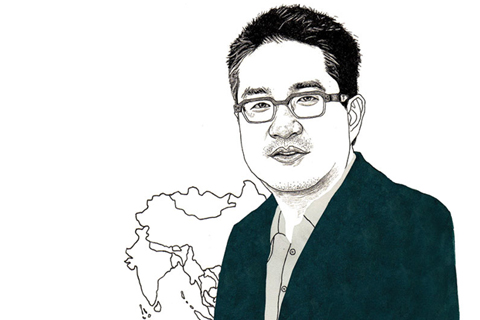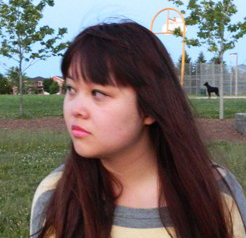By 2030, Asia’s economy will surpass that of the United States and the European Union combined, according to a recent report by America’s National Intelligence Council. This expected shift in global economic power could harm Canada’s future prosperity and international position – unless we truly come to understand the region and learn to navigate our way in an increasingly Asia-centric world, says Joseph Wong, a political science professor and director of the Asian Institute at the Munk School of Global Affairs.
Wong, 39, wants to ensure that U of T students have the real-world skills and connections to meet this challenge. He and his colleagues at the Asian Institute are the leading force behind the Contemporary Asian Studies program, which was established last year and provides a multidisciplinary, region-wide lens through which students critically explore the continent’s socio-economic trends. Students learn about the region’s economics, cultures, geography, history, politics and sociology – via textbooks, but also, importantly, by visiting the region itself.
Since 2009, the Asian Institute, in collaboration with the political science department and Woodsworth College, has offered an experiential learning program in Shanghai where U of T students visit Fudan University, and, alongside Chinese students, look at international issues from Western and Chinese perspectives. “There is no shortage of global conversations about the rise of Asia,” says Wong, who teaches the study-abroad program with Fudan professors. “But our goal with the Asian Institute, and the Contemporary Asian Studies program in particular, is to expose students to conversations being generated within Asia about the world.”
Rather than dividing Asia into countries, the Asian Institute examines larger thematic questions that span the region, says Wong. Much of his own current research focuses on health innovation in “the poorest of poor regions” in the Global South – and on determining which technologies and social policies can most help those living on less than a dollar a day. He is particularly interested in rural health care and the management of global public health crises, such as the HIV-AIDS pandemic.
Wong, who holds a Canada Research Chair in health and development, makes a point of telling students about his fieldwork in the Asian countryside and interviews with international labour leaders on the one hand and venture capitalists on the other. He hopes this will encourage students to travel to places that are outside of their comfort zone. “To have them be passionate about arguing, debating and engaging in the global conversation – that is the most important learning experience that we can facilitate as academics,” says Wong.
Joseph Wong talks about the elements of a great student experience.
Recent Posts
U of T’s 197th Birthday Quiz
Test your knowledge of all things U of T in honour of the university’s 197th anniversary on March 15!
Are Cold Plunges Good for You?
Research suggests they are, in three ways
Work Has Changed. So Have the Qualities of Good Leadership
Rapid shifts in everything from technology to employee expectations are pressuring leaders to constantly adapt






